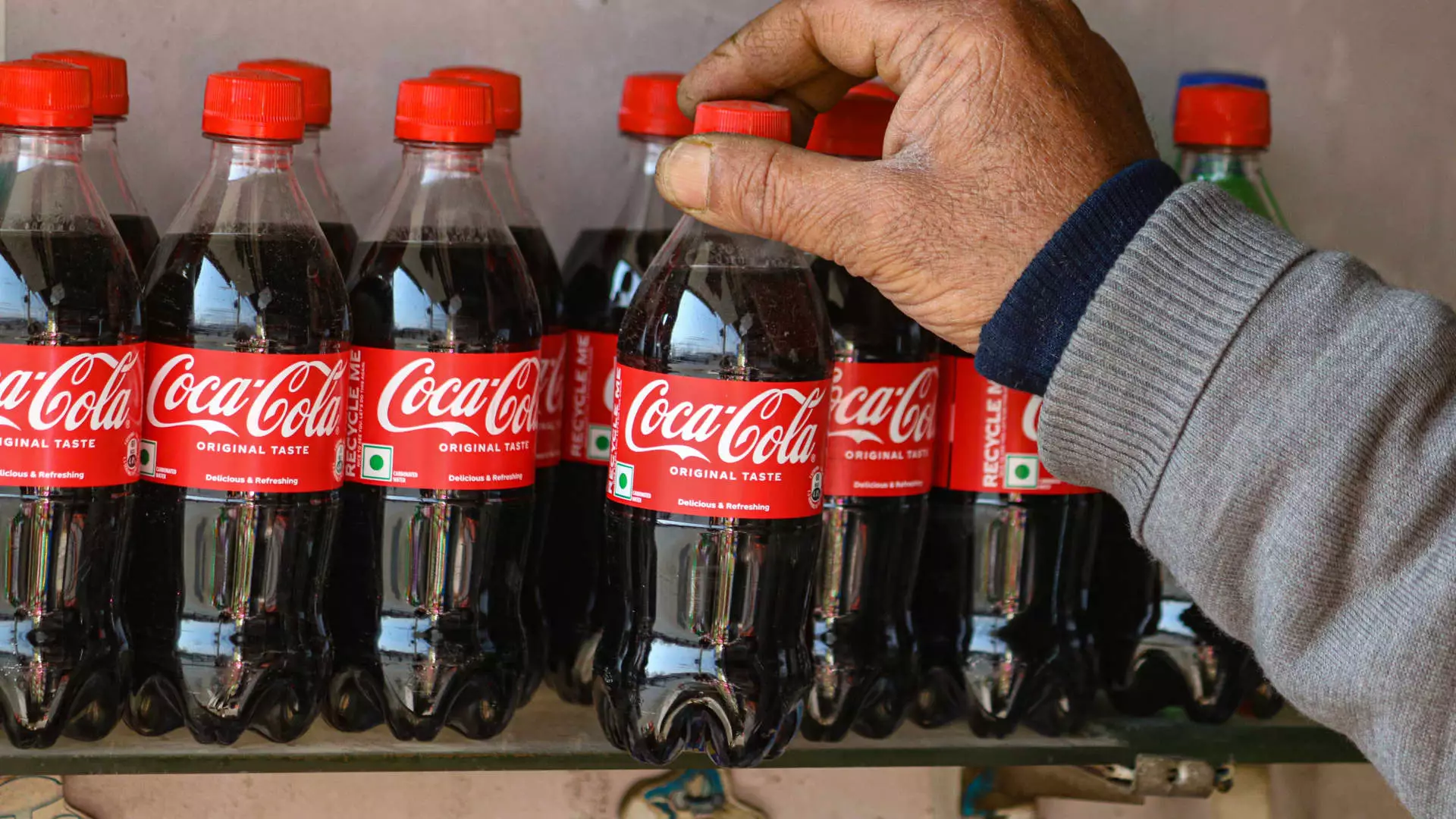In the ever-evolving landscape of global economics and environmental sustainability, Coca-Cola faces a unique set of challenges and opportunities. With President Donald Trump’s recent announcement of increased tariffs on aluminum imports, the beverage giant’s CEO, James Quincey, outlined potential shifts in the company’s packaging strategy. These shifts, influenced by rising costs and environmental considerations, are crucial not just for Coca-Cola’s bottom line but also for its reputation as a responsible corporate citizen.
Coca-Cola’s decision to potentially transition from aluminum to plastic packaging stems primarily from financial pragmatism. CEO Quincey stated during the company’s earnings call that if aluminum prices were to rise due to tariffs, Coca-Cola would pivot towards alternative packaging solutions like PET bottles. This adaptability is crucial in a market where cost competitiveness is king, particularly as the increased tariffs on aluminum rise from 10% to 25%. This move underscores an essential aspect of business strategy: the ability to respond quickly to external economic pressures.
While some may argue that this shift indicates a short-term focus driven solely by cost, it also reflects a broader trend in beverage packaging. Companies must continuously reevaluate their supply chains to optimize both cost and consumer demand. Nonetheless, Quincey emphasized that the financial impact of these tariffs would be limited in the wider context of Coca-Cola’s operations. By mitigating cost fluctuations with alternative packaging materials, Coca-Cola appears to strategically position itself amidst these changing economic tides.
However, the discussion about packaging at Coca-Cola is not solely driven by cost. Environmental impact plays a significant role in the conversation. While aluminum can be recycled infinitely and has a better recycling rate than PET plastic, Coca-Cola has faced ongoing criticism regarding its reliance on single-use plastics. Greenpeace’s designation of Coca-Cola as the world’s worst polluter for six consecutive years is a stark reminder of the company’s challenges in balancing economic efficiency with ecological responsibility.
In light of these environmental concerns, Coca-Cola’s potential shift towards employing more plastic in its packaging raises eyebrows. Even though PET is lighter and more affordable than aluminum, it comes with its own set of environmental consequences. The recycling rate for PET bottles was only 29.1% in 2018, in contrast to the more favorable 50.4% recycling rate for aluminum. Companies like Coca-Cola, striving for sustainability, face the challenging task of realigning their goals while navigating public scrutiny.
Recent revisions to Coca-Cola’s sustainability objectives have also sparked debate. The company lowered its target of using 50% recycled materials in packaging by 2030 to between 35% and 40% by 2035. This adjustment raises fundamental questions about the company’s commitment to sustainability. On one hand, such changes might reflect the complexity and realities of achieving ambitious sustainability targets; on the other, it risks alienating consumers increasingly interested in eco-friendly products.
Coca-Cola’s focus on ensuring the collection of 70% to 75% of bottles and cans—rather than fully recycling each bottle used—potentials a further divergence from environmental responsibility. This decision illustrates a compromise between operational feasibility and public expectations, ultimately prompting a reevaluation of the company’s environmental integrity and public image.
While Coca-Cola’s pivot from aluminum to plastic in packaging could serve as a tactical response to tariff increases, it invites broader discussion around sustainability, corporate responsibility, and consumer expectations. As the beverage giant seeks to navigate rising production costs while addressing environmental degradation, it faces the dual challenge of repositioning itself in the market without sacrificing its commitment to sustainability. The path forward will require balancing business acumen with ethical corporate practices, a balancing act that could ultimately define Coca-Cola’s legacy in the coming years.

